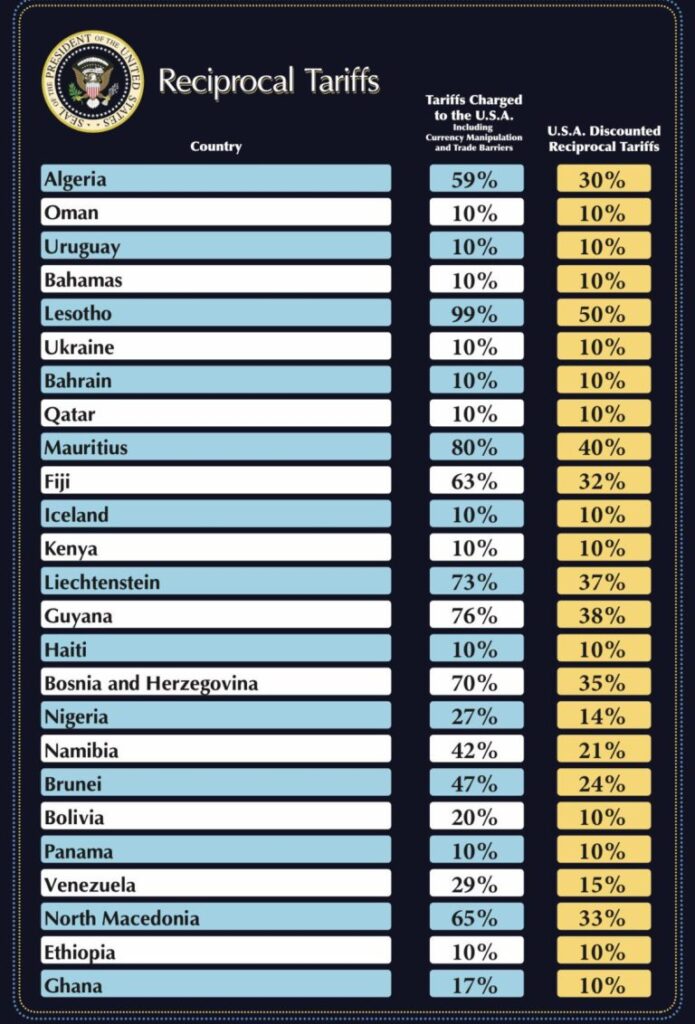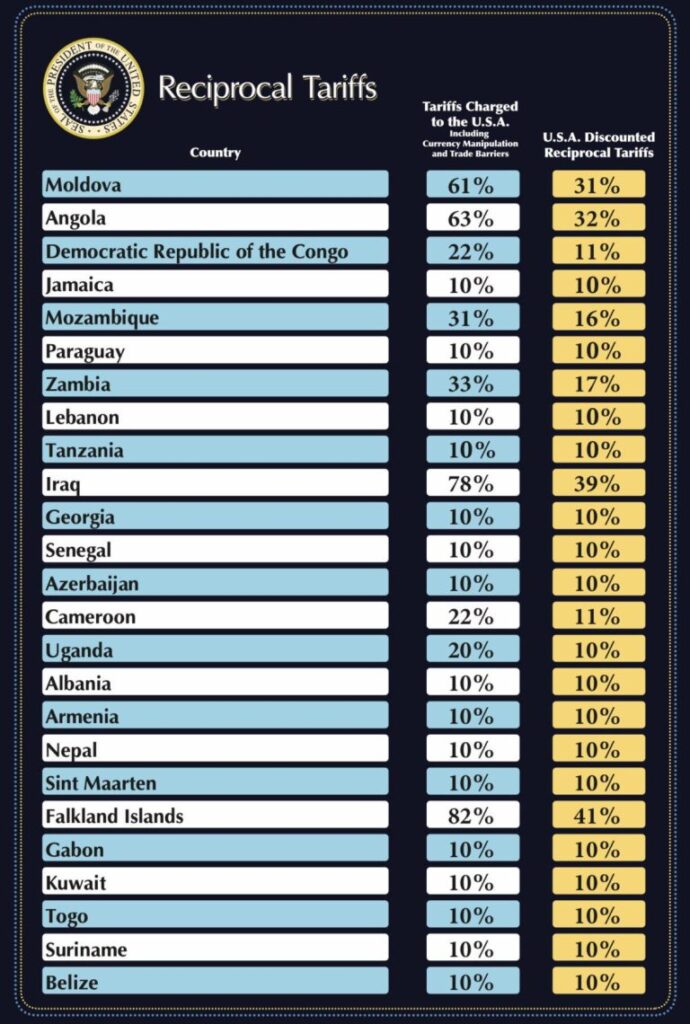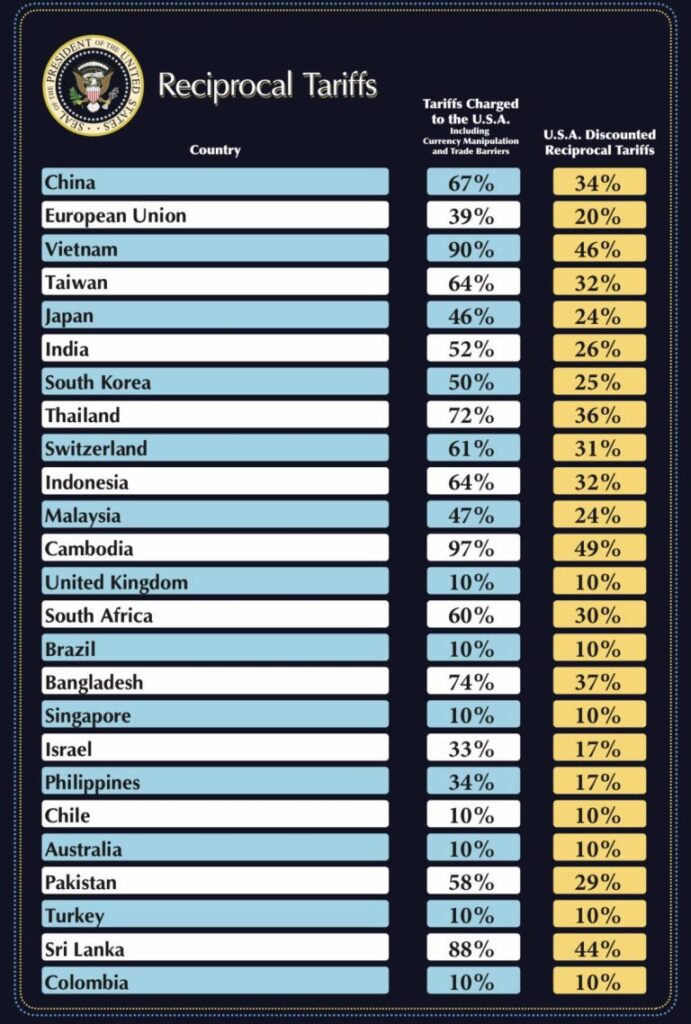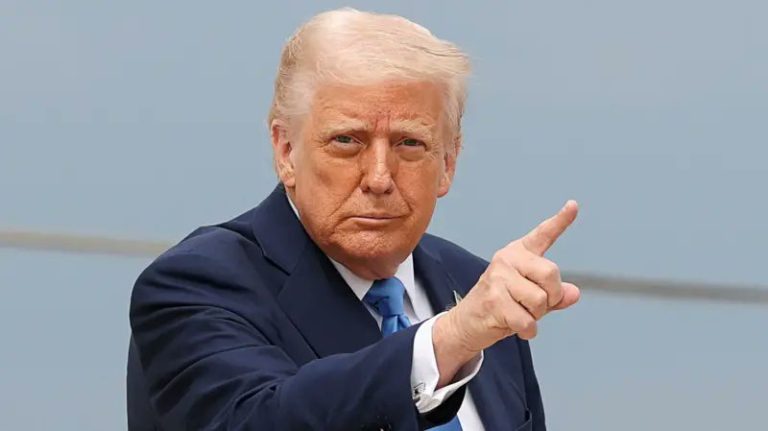The United States, under President Donald Trump, has imposed a 14 percent tariff on all Nigerian goods entering the country as part of the much-anticipated “Liberation Day” tariffs, according to Eye Reporters.
Trump had previously announced that tariffs would be applied at half the rate that other countries charge the U.S., with a minimum tariff of 10 percent. This calculation includes non-monetary trade barriers and currency manipulation, as determined by the White House.
For Nigeria, the 14 percent tariff comes in response to the 27 percent duty the country imposes on U.S. goods. This move is part of a broader tariff policy affecting 185 countries, ending months of speculation that had unsettled global stock markets across the U.S., Europe, and Asia.



The new tariffs escalate the ongoing trade war, with an additional 25 percent tariff on all foreign-made vehicles set to take effect this week. Trump has implemented a baseline 10 percent tariff across all countries but has significantly increased duties on certain nations he considers “bad actors.” For instance, Lesotho now faces a staggering 50 percent levy on its exports to the U.S.
While unveiling the tariffs, Trump defended his decision, stating that he could have imposed even higher rates to fully match what other nations charge the U.S.
Auto tariffs of 25 percent are set to be enforced starting tomorrow.
Nigeria’s total exports to the U.S., valued at N4.59 trillion, could be impacted by these tariffs, as reported by Vanguard. However, some analysts believe the effect on Nigeria’s trade may be limited.
David Adonri, Vice Chairman of Highcap Securities, noted that American consumers could bear the cost of the tariff increase if Nigerian exports have a high price elasticity of demand.
He explained that Trump’s move aims to discourage imports and boost domestic production but might not significantly affect Nigerian exports, which largely consist of tropical agricultural products.
“U.S. trade with Nigeria is not significant, hence an increase in tariffs may not greatly impact Nigeria’s exports,” Adonri remarked.
He also pointed out that with the rising importation of crude oil by Dangote Refinery, the trade balance could now tilt in favor of the U.S. “If the goods Nigeria exports to the U.S. have high price elasticity of demand, American consumers will bear the extra costs,” he added.
For advert placement and inquiries, publication of press releases, and news coverages, please call: Phone: 08052898434 Email: editor@eyereporters.com, click here to view the advert rates.



